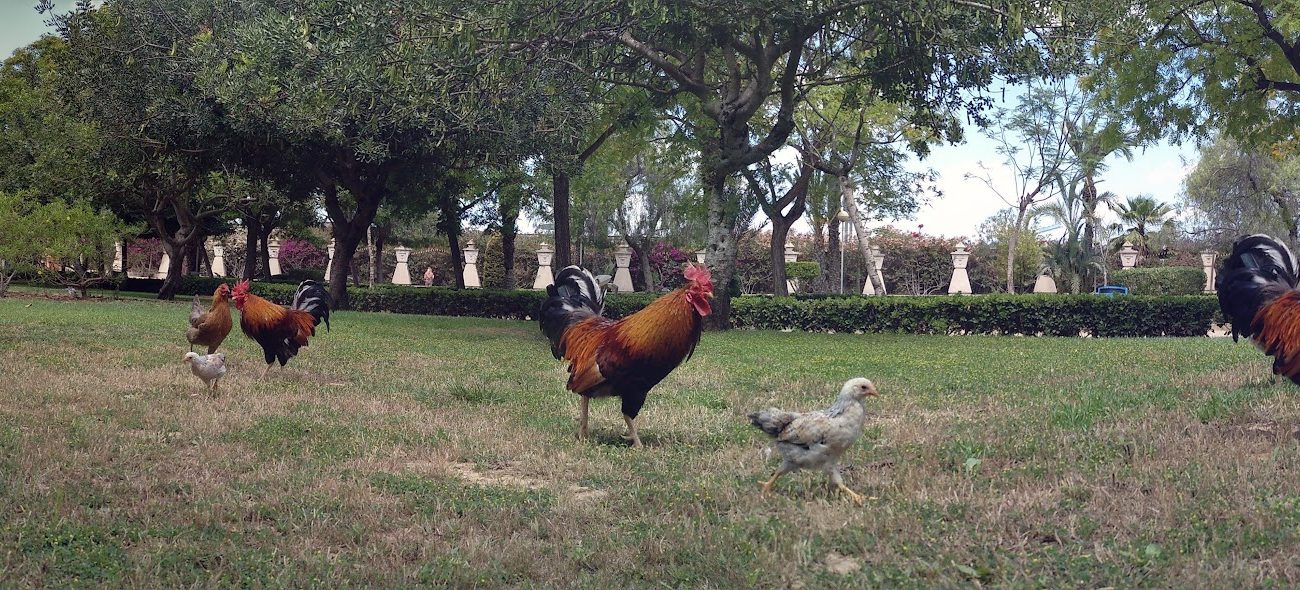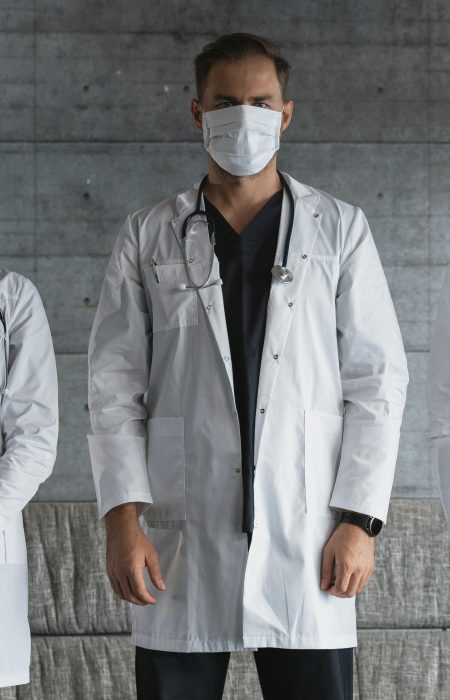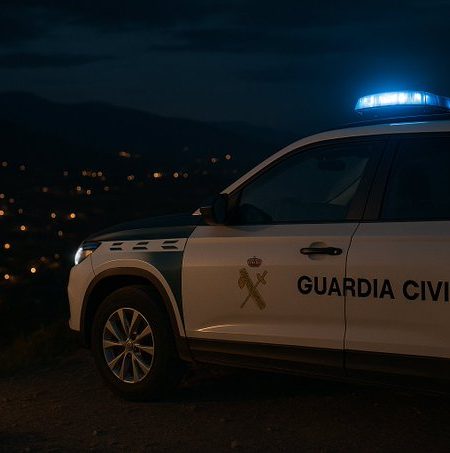There are starting to be fewer roosters and hens running around on the streets of Torrevieja, but not because the business that will catch them has begun work. The reasons are very different. About 30 dead chickens have been recovered. Everything points to poisoning as the cause, which might also happen to other animals like dogs and cats.
The Environmental Police have been looking into the situation since the first dead animals were found in one place, which hasn’t happened in a while. It looks like someone left poisoned food, but we are still waiting for toxicology findings on both the food found in the vicinity and the carcasses, which were subsequently transferred to the local animal shelter to be frozen.
Concha Sala, the Councillor for Animal Welfare, told this outlet, “The environmental police are doing strict control and monitoring.” The contractor who will control the birds will meet with the city vet for the first time on Thursday to discuss when the work will start, the councillor said.
Some residents, like those in Parquemar III, the residential area of Molino del Agua, have complained about the cackling and are asking for the bird colony that has grown in the Molino del Agua park, which is also a protected area as a municipal natural park, to be properly cared for.
It’s important to recall that the original business that wanted to catch more than 700 roosters, hens, and chickens from the streets of Torrevieja backed out of the deal in August. They had offered €26,000 for the job but thought it would cost more. The City Council gave the contract to Adda Ops, the third company, this month for €33,600 and a year to do the work.
The goal of this contract for the city is to try to get rid of a lot of birds that are on public roads. These birds can cause traffic accidents and don’t get any veterinarian care because they breed naturally in cities. This summer, a picture went viral on TikTok, sparking a nationwide craze.
“Extra risk”
The effect was so strong that on September 5th, the regional government wrote to the City Council asking it to take the right steps to control the municipality’s free-roaming hens. The regional government requested the collection and safekeeping of the hens, citing outbreaks of avian flu in other autonomous communities. It also reminded the City Council that Torrevieja is one of the cities that has a “special risk zone.”
The municipal technical study said that even though this problem hasn’t been found in the municipality, the City Council is aware of the possibility. It also included putting the new contract into effect, but it also admitted that there were problems in doing so. It also said that further rules would be needed to keep trapped birds in cages and away from other birds, and it even thought about making an emergency contract.
The research also made the regional ministry think about animal protection in a number of ways, such as how long the animals should be alone, whether they should be vaccinated after being caught, and when it would be okay to put them down.
Sala says, nevertheless, that the contract that has already been signed contains the isolation technique, thus there is no need for an extra expense.
Place of safety
The winning bidder must have a shelter or sanctuary for the animals so that they can be caught without being killed, as the specifications say. This isn’t a suggestion from the city; it’s a requirement of current state law on animal welfare. The company has to do the transit and sign a transfer contract with the sanctuary, which raises costs. This is why the original company said no.
The City Council had been working on a service contract for nine months, which is a very short time compared to the contracts this city usually handles. The problem for companies that are interested and have submitted bids is finding a sanctuary or zoo. This is because there are a lot of birds to transport, and the distance between the capture area and the reception area can make transport more expensive. Furthermore, authorised facilities need veterinary guarantees that the birds are healthy, especially since avian flu is on the rise, and the animals that need to be captured don’t have municipal health monitoring.
Also, a lot of the companies who applied were from the pest management industry and were good at getting rid of cockroaches, rodents, or mosquitoes, but not good at catching live animals.
Their home
The number of birds has not grown rapidly in the last several years; it has taken more than thirty years for this to happen.
The hens and roosters came from the Parque de las Naciones, a green space that the City Council built in the 1990s. They released not only poultry but also ducks, geese, and peacocks. The park’s caged pond, which opens and closes, is home to this group of birds. However, they have also been moving to other green spots in the city, such the nearby Estacion Park.
They can also be found in the undeveloped area of Villa Amalia, the abandoned green plot of La Veleta, the San Roque neighbourhood, the area around the Acequión health centre, the Plaza de las Islas Canarias, and Molino del Agua, among other places.









No Comment! Be the first one.